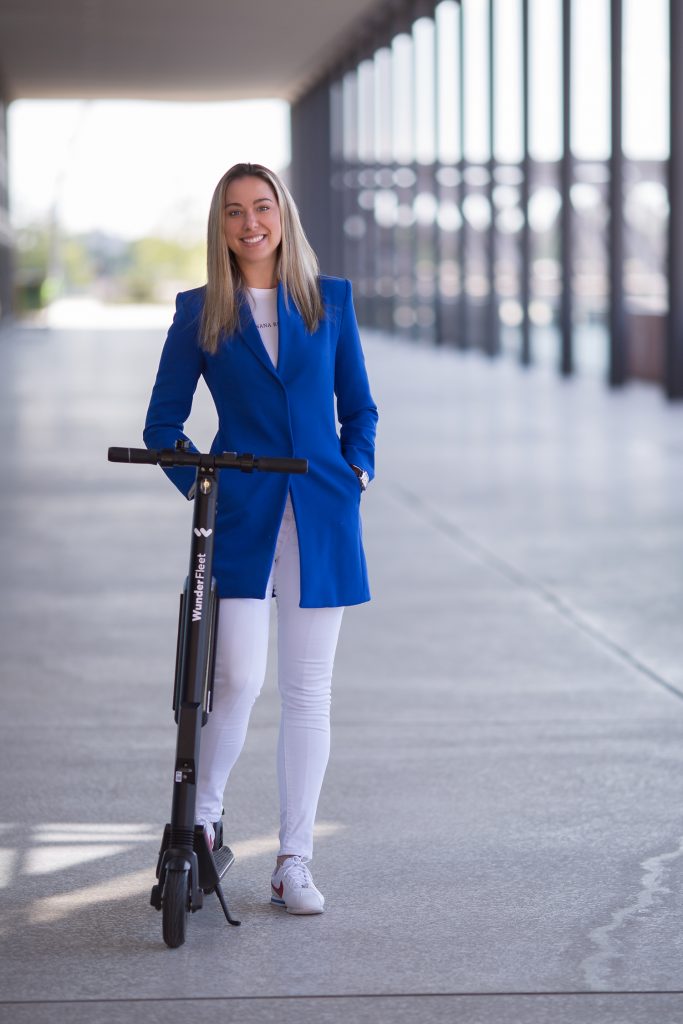At IFA 2019, I met Tamy Ribeiro at the Shift Automotive Conference. Tamy spoke on the subject of the changing automotive field. New technologies have risen challenging the classic models of transportation. As an expert on topics and trends shaping mobility today and in the future, her opinion is valued in an ever changing industry.
What peaked my curiosity was the fact a female executive talking about both technology and automotive subjects. Both industries are highly male driven with only a few women getting a corner office. After a chat, I asked if she could answer a few questions on the obstacles a woman faces in these worlds. Mrs. Ribeiro said, “Yes”.

The Interview-Part One
Women are speaking out in other fields, has the tech area been slow to respond?
I think this is a very broad issue, and sexism is prevalent in almost every industry on the planet. It’s common knowledge the tech industry has been dominated by men essentially since its inception. It does bother me to know companies like Amazon rarely offer information on how female employees are treated at the workplace or how many are in leadership positions. I believe that transparency is the first step towards a fairer future.
Nevertheless, progress is being made. It’s my job to spread awareness for the tech company I work for. I’ve made a career for myself in a male-dominated industry. I’d love to see more women doing the same in the future, and it’s going to take a team effort for us to get there!
A Presence in 2 Fields
Why did you choose both tech and automotive as a career field?
My journey into mobility was not the traditional path. First, I started my career in travel and then after over a decade of work I had a mid-life crisis and I decided that it was the best time to start my life over again by moving to Germany to raise my kids. I joined Wunder in 2016 to do a one-month internship and conclude a course without expecting a long-term contract – I was actually enjoying going back to this student life. I planned to keep studying after concluding it.
However, I fell in love with the company and its mission. Moreover, I saw a great opportunity to learn by doing. I had the support of my leadership team to gain the experience and skill sets I desired. Luckily, I had the chance to grow with the company and see it expand its portfolio and presence worldwide. Both industries are challenging for women, but to be honest, that’s why I loved it since day one.
Advice
What advice would you share with a woman starting in this field?
Always believe in yourself, even when it seems impossible. You are more capable than people would have you think. Your opinions are valid, and you are just as smart and knowledgeable as the other men on the team. Don’t let their bravado fool you! Often it’s the ones who talk the loudest who know the least. Don’t be afraid to speak up and have your voice heard.
Do you get asked certain “woman” questions?
If by “woman” questions you mean things relating to my appearance or how I could possibly juggle all my work with motherhood, I’ve been fortunate – most people just leave me alone about that. When and if it happens, I think them so insignificant and I feel so embarrassed for the person that I don’t waste my time feeling bad, I feel sorry. Instead of putting myself in the victim position, I feel privileged for having more clarity and access to information than the person who is asking me the question.
Sexism is Real
Sexism, how would you explain the experiences?
I consider myself strong and well prepared to deal with sexism. One of the reasons is because tough challenges are key to my personal motivation. There is nothing more rewarding than listening to a sexist comment and proving with numbers and facts that the person is wrong afterwards. I’m not saying that it doesn’t affect me – I had several moments in which I smiled at the situation then turned to the next page and kept working. But afterwards, I had to hide myself to get my breath back.
However, when you start seeing it as a challenge to overcome and you end up accomplishing what you had in mind, no words are necessary. Nothing makes me prouder as a woman than looking back and seeing how many sexist voices I could shut up by simply continuing to achieve my goals – I truly believe that this is the most effective way to make them notice their failures and reconsider their way of thinking.
Melissa Myer and Meg Whitman made it to the top of big tech companies. Can they be used as examples of the tech field being diverse?
Melissa Myer and Meg Whitmann are both hard-working, highly intelligent women who deserve to be in the positions they’re in. Nevertheless, I would be careful of using them as “examples”, seeing as how they’re both white women from privileged backgrounds. The tech field is not diverse – to say anything to the contrary would be sort of ridiculous. Women make up 59% of the total workforce, but they only make 30% of the workforce in tech companies. To make matters worse, of the 41 Fortune 500 tech companies, only five of them have a female CEO. So while I applaud Melissa and Meg for their contribution to the industry, I don’t think they signify diversity in tech.
Tamy Ribeiro is Chief Mobility Evangelist & Head of Partnerships for Wunder Mobility based in Hamburg, Germany
Part 2 of the interview Coming Soon